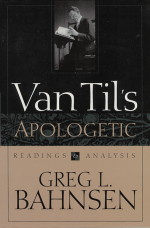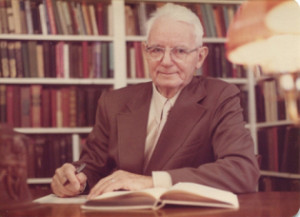Category: Cornelius Van Til
-
Van Tilian Turf Wars (Part 2)
Presuppositionalists are sticklers for sound apologetic methodology. But how is sound apologetic methodology discerned? Presuppositional proclivities preclude the vast majority of classical or evidentialist approaches to apologetics. That much is clear. But how does one determine who is right and who is wrong when presuppositionalists argue about methodology amongst themselves? Perhaps we all agree that presuppositional apologetic methodology is the way to go, but who is to say what presuppositional apologetic method is? Is there some standard of presuppositional orthodoxy?
Fundamentalist presuppositionalists tend to respond to these questions by citing the Bible as their ultimate authority for apologetics. The …
-
Ancient Empiricism: Aristotle (Van Til’s Apologetic: Readings and Analysis, p329-333)
 Ancient Empiricism: Aristotle (139)
Ancient Empiricism: Aristotle (139)(A)In a non-Christian scheme of thought abstract universal and particulars stand over against one another in an unreconcilable fashion. Such was the case in Plato’s philosophy. Aristotle sought to remedy the situation by teaching that the universale are present in the particulars. But he failed to get genuine contact between them, inasmuch as for him the lowest universal (infima species), was, after all, a supposed abstraction from particulars. Hence the particulars that were presupposed were bare particulars, having no manner of contact with universality. And if they should, per impossible, have contact with universality, they would …
-
Van Til on the Modern Man’s View of Scripture.
 In response to A.E Taylor’s ‘Does God exist?’ Van Til writes:
In response to A.E Taylor’s ‘Does God exist?’ Van Til writes:“Taylor simply assumes that every human mind, that of an apostle no less than that of any other man, contributes in an original sense to what it receives. The result is that even if he could believe in a self-contained God – which on his premises he cannot – Taylor cannot believe that any man could receive any revelation from such a God without to some extent, in the very act of reception, confusing it with his own experiences that operate independently of this God.
The whole attitude of …